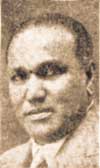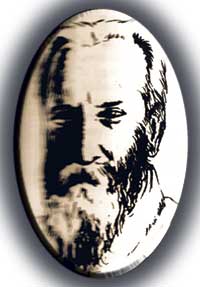Three
prominent personalities
The first week of November marks the birth
of at least three prominent Sri Lankan personalities. Two
of them were born on the same day, the same year. They are
Professor Gunapala (G.P.) Malalasekera and Sir Senerat Gunawardena
whose birthdays fall on November 3, 1899. The third - Raja
Hewavitarana - was born one year earlier - on November 1,
1898.
 |
| Sir Senerat Goonewardena |
Professor Malalasekera (1899-1973) was one
of the most distinguished Sri Lankans of our times. He excelled
in many fields as an educationist, researcher, academician,
art lover, religious and social worker, linguist, orator and
diplomat.
He was attached to the University College
as a lecturer from 1939. From 1942 onwards he was Professor
of Pali and Buddhist Civilization and was also Dean of the
Faculty of Oriental Studies. His service to the cause of Buddhism
as President of the All-Ceylon Buddhist Congress (1939-58)
was greatly appreciated and the Congress became a highly recognised
institution during his tenure. His unique effort to unite
the various Buddhist groups scattered throughout the world
resulted in the formation of the World Fellowship of Buddhists
(May 1950) of which he was the founder. As Editor-in-Chief
of the Buddhist Encyclopedia and the many writings including
the monumental Dictionary of Pali Proper Names, he contributed
much to Buddhist thought, culture and civilization. The English-Sinhala
Dictionary he edited remains the most popular dictionary to
this day.
Professor Malalasekera was our first Ambassador
in the Soviet Union (1956) from where he moved over as Permanent
Representative in the United Nations (1961-63) and as Sri
Lanka's High Commissioner in UK (1963-67).
Sir Senerat (R. S. S. ) Gunawardena (1899-1981)
was an active politician from the time the Ceylon National
Congress was founded serving as its Joint Secretary (1926-32)
and as Vice President. He campaigned for universal adult franchise.
He was elected Member of the State Council in 1936 to represent
Gampola and served as acting Minister of Local Government
in November 1936. He retained the seat at the 1947 general
election thereby becoming a Member of Parliament in the first
parliament. Sir Senerat was appointed Minister without Portfolio
in the first D. S. Senanayake Cabinet. He was also the Chief
Government Whip. He lost his seat following an election petition
and although he contested the by-election, he failed to win.
He was given a diplomatic assignment 1949 as Ambassador to
Rome and was appointed Ambassador to the United States of
America in 1954. He played a prominent role in gaining entry
to the United Nations in 1957. He was keenly interested in
Buddhism and helped to establish the Buddhist Centre in Washington.
He was a founder member of the All-Ceylon Buddhist Congress
and served as its President too.
Raja Hewavitarana (1898-1958) was the son
of Edmund Hewavitarana and a grandson of Don Carolis Hewavitarana,
founder of the well-known furniture business, Don Carolis
& Sons, of which he was a director after studying engineering
in the UK. As a member of the State Council (1936-39), he
was appointed to the Executive Committee of Communications
& Works first, and later the Executive Committee of Labour,
Industry & Commerce, serving as acting Minister in 1941.
He took a keen interest in Buddhism and
was a Trustee of the schools of the Mahabodhi Society and
secretary of the Colombo YMBA.
|


